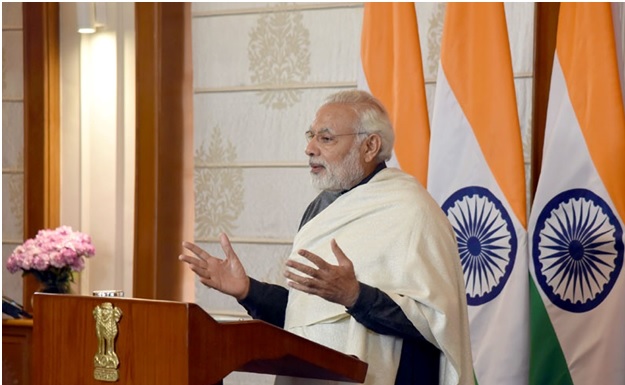आज बहुत ही अच्छा अवसर है जब हम देश के लिए अपना जीवन समर्पित करने वाले देश के महान सपूत को याद कर रहे हैं। ये देश के लिए अनवरत कार्य करने का, खुद को खपा देने का जज्बा है, जो हमें दिन-समय-पहर की चिंताओं से परे, इस तरह साथ लाता है
ये वो सत्य है जो बंगाल के लोगों को चिंतन-मनन के उस स्तर पर ले जाता है, जहां पहुंचना मुश्किल होता है। ये वो सत्य हैजिसकी वजह से बंगाल ने सदियों तक देश की धुरी बनकर देश को थामे रखा है।
भारत के लिए ये गर्व की बात है कि इस भूमि ने एक से बढ़कर एक वैज्ञानिक भी पूरी दुनिया को दिए। आचार्य एस. एन. बोस केअलावा जे. सी. बोस, मेघनाद साहा, कितने ही नाम है जिन्होंने देश में आधुनिक विज्ञान की आधारशिला मजबूत की।
Friends, we have a lot to learn from the life and works of Acharya S. N. Bose. He was a self-taught scholar.
He succeeded despite many constraints. These included the lack of formal research education, and little connectivity with the global scientific community. His path-breaking work in 1924 was due to his single-minded devotion to uncharted science.
It laid the foundations of Quantum Statistics and a basis for modern Atomic Theory. Einstein’s biographer Abraham Pace regarded his work as one of the last four revolutionary papers on old Quantum Theory.
The name of Satyendra Nath Bose has been immortalized in the history of science by concepts and terms, like Bose Statistics, Bose Einstein Condensation and Higgs Boson.
The fundamental importance of his work may be gauged from the fact that several Nobel Prizes in Physics have been awarded subsequently to researchers carrying forward his ideas to diverse physical applications.
I have been talking about the need for greater sharing of physical and research infrastructure, which is expensive and has an increasingly short lifetime.
I am told that our science departments are now working on a multipronged approach. I understand that a portal is being developed for sharing of scientific infrastructure that would allow transparent and efficient tagging and sharing of resources.
A mechanism is being put up for strong collaborations between academic and R&D institutions. City based R&D Clusters are being created to bring together all Science and Technology partners from Academia to Institutes, to Industries to Startups.
(The views expressed are the author's own and do not necessarily reflect the position of the organisation)

